Archive for the ‘Cold War’ Category
14 May
The AP Test is HERE!!!
22 Apr
The “Evil Empire” speech
“The Evil Empire,”
President Reagan’s Speech to the House of Commons, June 8, 1982
Questions for understanding:
1. What famous speech does Reagan use an image from in the first paragraph? What is the connection between these two speeches?
2. In what way was Marx right, according to Reagan?
3. How does the world refugee situation prove the superiority of capitalism and democracy, according to Reagan?
4. What is the purpose of our engagement in competition with the Soviet Union?
We’re approaching the end of a bloody century plagued by a terrible political invention
— totalitarianism. Optimism comes less easily today, not because democracy is less vigorous, but because democracy’s enemies have refined their instruments of repression. Yet optimism is in order because day by day democracy is proving itself to be a not at all fragile flower. From Stettin on the Baltic to Varna on the Black Sea, the regimes planted by totalitarianism have had more than thirty years to establish their legitimacy. But none — not one regime — has yet been able to risk free elections. Regimes planted by bayonets do not take root.
The strength of the Solidarity movement in Poland demonstrates the truth told in an underground joke in the Soviet Union. It is that the Soviet Union would remain a one-party nation even if an opposition party were permitted because everyone would join the opposition party….
Historians looking back at our time will note the consistent restraint and peaceful intentions of the West. They will note that it was the democracies who refused to use the threat of their nuclear monopoly in the forties and early fifties for territorial or imperial gain. Had that nuclear monopoly been in the hands of the Communist world, the map of Europe–indeed, the world–would look very different today. And certainly they will note it was not the democracies that invaded Afghanistan or suppressed Polish Solidarity or used chemical and toxin warfare in Afghanistan and Southeast Asia.
If history teaches anything, it teaches self-delusion in the face of unpleasant facts is folly. We see around us today the marks of our terrible dilemma–predictions of doomsday, antinuclear demonstrations, an arms race in which the West must, for its own protection, be an unwilling participant. At the same time we see totalitarian forces in the world who seek subversion and conflict around the globe to further their barbarous assault on the human spirit. What, then, is our course? Must civilization perish in a hail of fiery atoms? Must freedom wither in a quiet, deadening accommodation with totalitarian evil?
Sir Winston Churchill refused to accept the inevitability of war or even that it was imminent. He said, “I do not believe that Soviet Russia desires war. What they desire is the fruits of war and the indefinite expansion of their power and doctrines. But what we have to consider here today while time remains is the permanent prevention of war and the establishment of conditions of freedom and democracy as rapidly as possible in all countries.”
Well, this is precisely our mission today: to preserve freedom as well as peace. It may not be easy to see; but I believe we live now at a turning point.
In an ironic sense Karl Marx was right. We are witnessing today a great revolutionary crisis, a crisis where the demands of the economic order are conflicting directly with those of the political order. But the crisis is happening not in the free, non-Marxist West but in the home of Marxism- Leninism, the Soviet Union. It is the Soviet Union that runs against the tide of history by denying human freedom and human dignity to its citizens. It also is in deep economic difficulty. The rate of growth in the national product has been steadily declining since the fifties and is less than half of what it was then.
The dimensions of this failure are astounding: a country which employs one-fifth of its population in agriculture is unable to feed its own people. Were it not for the private sector, the tiny private sector tolerated in Soviet agriculture, the country might be on the brink of famine. These private plots occupy a bare 3 percent of the arable land but account for nearly one-quarter of Soviet farm output and nearly one-third of meat products and vegetables. Overcentralized, with little or no incentives, year after year the Soviet system pours its best resources into the making of instruments of destruction. The constant shrinkage of economic growth combined with the growth of military production is putting a heavy strain on the Soviet people. What we see here is a political structure that no longer corresponds to its economic base, a society where productive forced are hampered by political ones.
The decay of the Soviet experiment should come as no surprise to us. Wherever the comparisons have been made between free and closed societies — West Germany and East Germany, Austria and Czechoslovakia, Malaysia and Vietnam — it is the democratic countries that are prosperous and responsive to the needs of their people. And one of the simple but overwhelming facts of our time is this: of all the millions of refugees we’ve seen in the modern world, their flight is always away from, not toward the Communist world. Today on the NATO line, our military forces face east to prevent a possible invasion. On the other side of the line, the Soviet forces also face east to prevent their people from leaving.
The hard evidence of totalitarian rule has caused in mankind an uprising of the intellect and will. Whether it is the growth of the new schools of economics in America or England or the appearance of the so-called new philosophers in France, there is one unifying thread running through the intellectual work of these groups — rejection of the arbitrary power of the state, the refusal to subordinate the rights of the individual to the superstate, the realization that collectivism stifles all the best human impulses….
Chairman Brezhnev repeatedly has stressed that the competition of ideas and systems must continue and that this is entirely consistent with relaxation of tensions and peace.
Well, we ask only that these systems begin by living up to their own constitutions, abiding by their own laws, and complying with the international obligations they have undertaken. We ask only for a process, a direction, a basic code of decency, not for an instant transformation.
We cannot ignore the fact that even without our encouragement there has been and will continue to be repeated explosion against repression and dictatorships. The Soviet Union itself is not immune to this reality. Any system is inherently unstable that has no peaceful means to legitimize its leaders. In such cases, the very repressiveness of the state ultimately drives people to resist it, if necessary, by force.
While we must be cautious about forcing the pace of change, we must not hesitate to declare our ultimate objectives and to take concrete actions to move toward them. We must be staunch in our conviction that freedom is not the sole prerogative of a lucky few but the inalienable and universal right of all human beings. So states the United Nations Universal Declaration of Human Rights, which, among other things, guarantees free elections.
The objective I propose is quite simple to state: to foster the infrastructure of democracy, the system of a free press, unions, political parties, universities, which allows a people to choose their own way to develop their own culture, to reconcile their own differences through peaceful means.
This is not cultural imperialism; it is providing the means for genuine self-determination and protection for diversity. Democracy already flourishes in countries with very different cultures and historical experiences. It would be cultural condescension, or worse, to say that any people prefer dictatorship to democracy. Who would voluntarily choose not to have the right to vote, decide to purchase government propaganda handouts instead of independent newspapers, prefer government to worker-controlled unions, opt for land to be owned by the state instead of those who till it, want government repression of religious liberty, a single political party instead of a free choice, a rigid cultural orthodoxy instead of democratic tolerance and diversity.
Since 1917 the Soviet Union has given covert political training and assistance to Marxist-Leninists in many countries. Of course, it also has promoted the use of violence and subversion by these same forces. Over the past several decades, West European and other social democrats, Christian democrats, and leaders have offered open assistance to fraternal, political, and social institutions to bring about peaceful and democratic progress. Appropriately, for a vigorous new democracy, the Federal Republic of Germany’s political foundations have become a major force in this effort.
We in America now intend to take additional steps, as many of our allies have already done, toward realizing this same goal. The chairmen and other leaders of the national Republican and Democratic party organizations are initiating a study with the bipartisan American Political Foundation to determine how the United States can best contribute as a nation to the global campaign for democracy now gathering force. They will have the cooperation of congressional leaders of both parties, along with representatives of business, labor, and other major institutions in our society. I look forward to receiving their recommendations and to working with these institutions and the Congress in the common task of strengthening democracy throughout the world.
It is time that we committed ourselves as a nation — in both the public and private sectors — to assisting democratic development….
What I am describing now is a plan and a hope for the long term — the march of freedom and democracy which will leave Marxism-Leninism on the ash heap of history as it has left other tyrannies which stifle the freedom and muzzle the self-expression of the people. And that’s why we must continue our efforts to strengthen NATO even as we move forward with our zero-option initiative in the negotiations on intermediate-range forces and our proposal for a one-third reduction in strategic ballistic missile warheads.
Our military strength is a prerequisite to peace, but let it be clear we maintain this strength in the hope it will never be used, for the ultimate determinant in the struggle that’s now going on in the world will not be bombs and rockets but a test of wills and ideas, a trial of spiritual resolve, the values we hold, the beliefs we cherish, the ideals to which we are dedicated.
The British people know that, given strong leadership, time, and a little bit of hope, the forces of good ultimately rally and triumph over evil. Here among you is the cradle of self-government, the Mother of Parliaments. Here is the enduring greatness of the British contribution to mankind, the great civilized ideas: individual liberty, representative government, and the rule of law under God.
I’ve often wondered about the shyness of some of us in the West about standing for these ideals that have done so much to ease the plight of man and the hardships of our imperfect world. This reluctance to use those vast resources at our command reminds me of the elderly lady whose home was bombed in the blitz. As the rescuers moved about, they found a bottle of brandy she’d stored behind the staircase, which was all that was left standing. And since she was barely conscious, one of the workers pulled the cork to give her a taste of it. She came around immediately and said, “Here now — there now, put it back. That’s for emergencies.”
Well, the emergency is upon us. Let us be shy no longer. Let us go to our strength. Let us offer hope. Let us tell the world that a new age is not only possible but probable.
During the dark days of the Second World War, when this island was incandescent with courage, Winston Churchill exclaimed about Britain’s adversaries, “What kind of people do they think we are?” Well, Britain’s adversaries found out what extraordinary people the British are. But all the democracies paid a terrible price for allowing the dictators to underestimate us. We dare not make that mistake again. So, let us ask
ourselves, “What kind of people do we think we are?” And let us answer, “Free people, worthy of freedom and determined not only to remain so but to help others gain their freedom as well.”
Sir Winston led his people to great victory in war and then lost an election just as the fruits of victory were about to be enjoyed. But he left office honorably and, as it turned out, temporarily, knowing that the liberty of his people was more important than the fate of any single leader. History recalls his greatness in ways no dictator will ever know. And he left us a message of hope for the future, as timely now as when he first uttered it, as opposition leader in the Commons nearly twenty-seven years ago, when he said, “When we look back on all the perils through which we have passed and at the mighty foes that we have laid low and all the dark and deadly designs that we have frustrated, why should we fear for our future? We have,” he said, “come safely through the worst.”
Well, the task I’ve set forth will long outlive our own generation. But together, we too have come through the worst. Let us now begin a major effort to secure the best – a crusade for freedom that will engage the faith and fortitude of the next generation. For the sake of peace and justice, let us move toward a world in which all people are at last free to determine their own destiny.
14 Apr
Images of the Vietnam Era
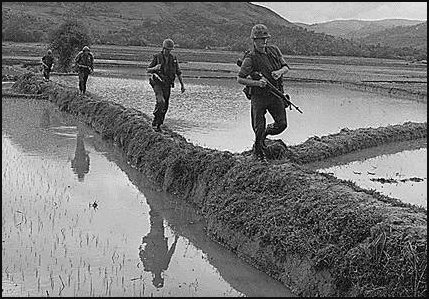
Troops would be deployed on patrol through rice paddies besides being in more heavily vegetated areas.
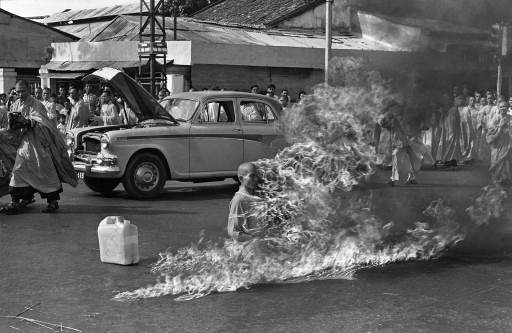
Quang Duc, a Buddhist monk, burns himself to death on a Saigon street June 11, 1963 to protest alleged persecution of Buddhists by the South Vietnamese government. (AP Photo/Malcolm Browne)
Meanwhile, on the home front, support for the war– and for the draft– waned, and protests started increasing by 1967 as Johnson’s policies as guided by Defense Secretary McNamara escalated the American presence in the fighting.
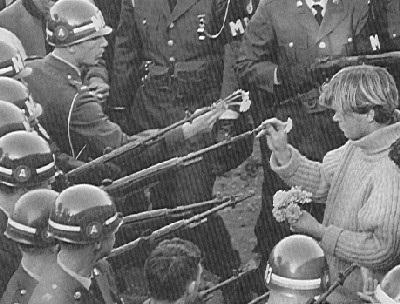
A popular folksong at the time asked: Where have all the flowers gone? They’ve been shoved into rifle barrels, of course.

A napalm strike erupts in a fireball near U.S. troops on patrol in South Vietnam, 1966 during the Vietnam War. (AP Photo)
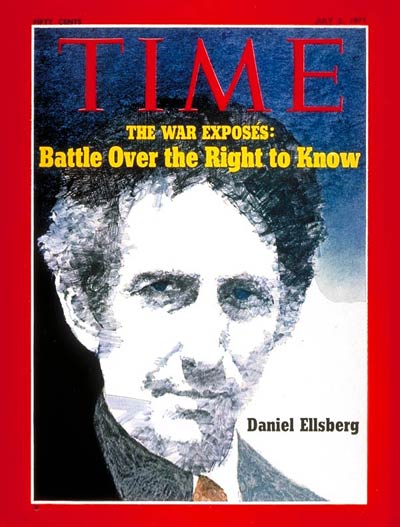
in 1970, the Pentagon Papers rocked the nation’s faith in how honest the government was about the war.
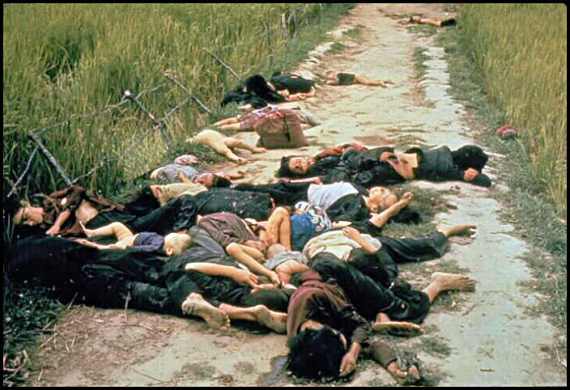
And then news of the My Lai incident hit the papers in 1970, as well, and protests grew even more pronounced.
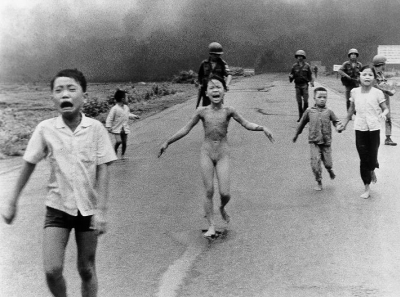
Children burned by napalm dropped by the Vietnamese Air Force. This photograph won many awards and became iconic. The young girl, Kim Phuc, survived and is an activist to this day.
For more information about Kim Phuc, go to this post, which has a link.
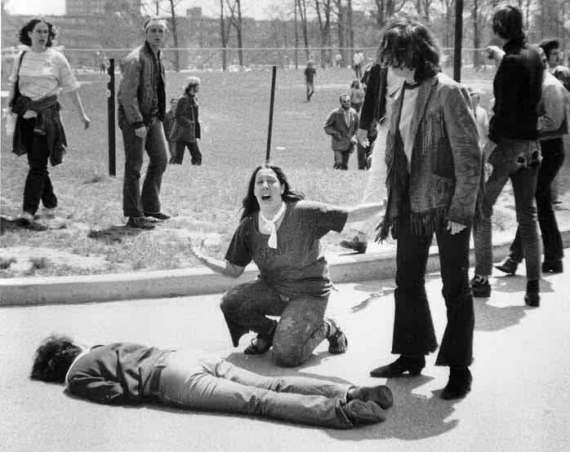
… and then “Four Dead in Ohio” as Crosby, Stills, Nash and Young sang after the National Guard opens fire. Nine other students were wounded– one paralyzed.
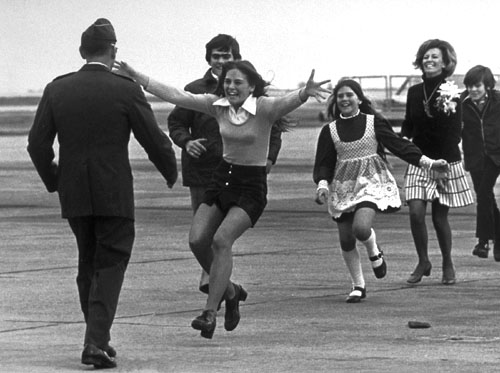
Released prisoner of war Lt. Col. Robert L. Stirm is greeted by his family at Travis Air Force Base in Fairfield, Calif., as he returns home from the Vietnam War, March 17, 1973.
After the Paris Peace Talks were concluded in 1973, POWs were released by the North Vietnamese. Here is a link to a news article of how Lt. Col. Stirm’s family was changed after this famous photo.
The picture above is famous, and the picture below includes someone famous now.
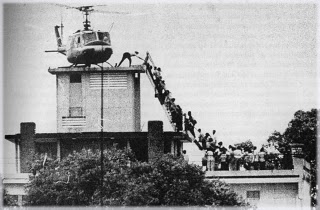
During the fall of Saigon in 1975, desperate Vietnamese try to get on one of the last helicopters leaving the US embassy.
Some of us wore bracelets with the names of POWs and MIAs during the war. I had one as a child, (but not this one). I seem to recall that if the person on your bracelet was recovered their bracelet could be sent to them so that they would know that people had been thinking of them.
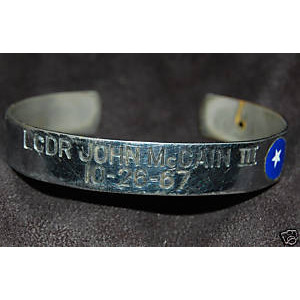
One program encouraged people to wear bracelets with the names of missing or captured troops on them– kind of like those elastic armbands for causes today, but more personal.
But not everyone came home. There are still MIAs from the Vietnam War, and remains of missing servicemen are sometimes located and returned even today.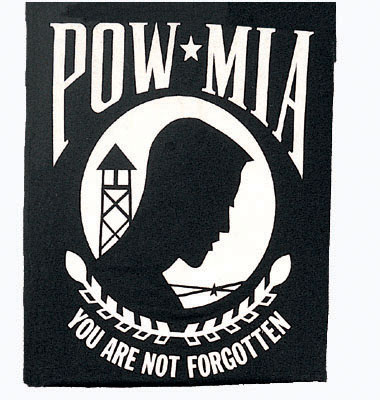
9 Apr
The St. Louis Baby Teeth Survey
Sometimes, you can’t make stuff like this up. Read this:
http://www.stltoday.com/lifestyles/health-med-fit/health/decades-later-baby-tooth-survey-legacy-lives-on/article_c5ad9492-fd75-5aed-897f-850fbdba24ee.html
Dr. Louise Reiss, who was the leader of the survey, just passed away in 2011. Here is her obituary in the New York Times: http://www.nytimes.com/2011/01/10/science/10reiss.html?_r=0
8 Apr
Duck and Cover- scene from The Iron Giant
First, if you haven’t seen this gem of a movie, you must treat yourself. So well done! The Iron Giant is set in the late 1950s/early 1960s. It portrays so well the fear of the unknown–and the ultimate dangers of the Arms Race and the paranoia that was produced during the Cold War, when people lives every day with the fear that life could be obliterated in a matter of moments.
In this scene, Hogarth, a kid who is considered nerdy and odd because he is very smart, is daydreaming as the class is shown a PSA (Public Service Announcement) on what to do in a nuclear attack. At the same time, there are rumors around town that a giant monster is roaming around– and Hogarth knows more than he is letting on. Not the irony of the last 15 seconds of the very brief clip.
What is the irony of this clip compared to the “Daisy” commercial below?
7 Apr
Kennedy’s Inaugural
Inaugural Address
John F. Kennedy, January 20, 1961
Vice President Johnson, Mr. Speaker, Mr. Chief Justice, President Eisenhower, Vice President Nixon, President Truman, reverend clergy, fellow citizens, we observe today not a victory of party, but a celebration of freedom — symbolizing an end, as well as a beginning — signifying renewal, as well as change. For I have sworn before you and Almighty God the same solemn oath our forebears prescribed nearly a century and three quarters ago.
The world is very different now. For man holds in his mortal hands the power to abolish all forms of human poverty and all forms of human life. And yet the same revolutionary beliefs for which our forebears fought are still at issue around the globe — the belief that the rights of man come not from the generosity of the State, but from the hand of God.
We dare not forget today that we are the heirs of that first revolution. Let the word go forth from this time and place, to friend and foe alike, that the torch has been passed to a new generation of Americans — born in this century, tempered by war, disciplined by a hard and bitter peace, proud of our ancient heritage — and unwilling to witness or permit the slow undoing of those human rights to which this Nation has always been committed, and to which we are committed today at home and around the world.
Let every nation know, whether it wishes us well or ill, that we shall pay any price, bear any burden, meet any hardship, support any friend, oppose any foe, in order to assure the survival and the success of liberty.
This much we pledge — and more.
To those old allies whose cultural and spiritual origins we share, we pledge the loyalty of faithful friends. United, there is little we cannot do in a host of cooperative ventures. Divided, there is little we can do — for we dare not meet a powerful challenge at odds and split asunder.
To those new States whom we welcome to the ranks of the free, we pledge our word that one form of colonial control shall not have passed away merely to be replaced by a far more iron tyranny. We shall not always expect to find them supporting our view. But we shall always hope to find them strongly supporting their own freedom — and to remember that, in the past, those who foolishly sought power by riding the back of the tiger ended up inside.
To those peoples in the huts and villages across the globe struggling to break the bonds of mass misery, we pledge our best efforts to help them help themselves, for whatever period is required — not because the Communists may be doing it, not because we seek their votes, but because it is right. If a free society cannot help the many who are poor, it cannot save the few who are rich.
To our sister republics south of our border, we offer a special pledge — to convert our good words into good deeds — in a new alliance for progress — to assist free men and free governments in casting off the chains of poverty. But this peaceful revolution of hope cannot become the prey of hostile powers. Let all our neighbors know that we shall join with them to oppose aggression or subversion anywhere in the Americas. And let every other power know that this Hemisphere intends to remain the master of its own house.
To that world assembly of sovereign States, the United Nations, our last best hope in an age where the instruments of war have far outpaced the instruments of peace, we renew our pledge of support — to prevent it from becoming merely a forum for invective — to strengthen its shield of the new and the weak — and to enlarge the area in which its writ may run.
Finally, to those nations who would make themselves our adversary, we offer not a pledge but a request: that both sides begin anew the quest for peace, before the dark powers of destruction unleashed by science engulf all humanity in planned or accidental self-destruction.
We dare not tempt them with weakness. For only when our arms are sufficient beyond doubt can we be certain beyond doubt that they will never be employed.
But neither can two great and powerful groups of nations take comfort from our present course — both sides overburdened by the cost of modern weapons, both rightly alarmed by the steady spread of the deadly atom, yet both racing to alter that uncertain balance of terror that stays the hand of mankind’s final war.
So let us begin anew — remembering on both sides that civility is not a sign of weakness, and sincerity is always subject to proof. Let us never negotiate out of fear. But let us never fear to negotiate.
Let both sides explore what problems unite us instead of belaboring those problems which divide us.
Let both sides, for the first time, formulate serious and precise proposals for the inspection and control of arms — and bring the absolute power to destroy other nations under the absolute control of all nations.
Let both sides seek to invoke the wonders of science instead of its terrors. Together let us explore the stars, conquer the deserts, eradicate disease, tap the ocean depths, and encourage the arts and commerce.
Let both sides unite to heed in all corners of the earth the command of Isaiah — to “undo the heavy burdens. . . and to let the oppressed go free.”
And if a beachhead of cooperation may push back the jungle of suspicion, let both sides join in creating a new endeavor, not a new balance of power, but a new world of law, where the strong are just and the weak secure and the peace preserved.
All this will not be finished in the first 100 days. Nor will it be finished in the first 1,000 days, nor in the life of this Administration, nor even perhaps in our lifetime on this planet. But let us begin.
In your hands, my fellow citizens, more than in mine, will rest the final success or failure of our course. Since this country was founded, each generation of Americans has been summoned to give testimony to its national loyalty. The graves of young Americans who answered the call to service surround the globe.
Now the trumpet summons us again — not as a call to bear arms, though arms we need; not as a call to battle, though embattled we are — but a call to bear the burden of a long twilight struggle, year in and year out, “rejoicing in hope, patient in tribulation” — a struggle against the common enemies of man: tyranny, poverty, disease, and war itself.
Can we forge against these enemies a grand and global alliance, North and south, East and West, that can assure a more fruitful life for all mankind? Will you join in that historic effort?
In the long history of the world, only a few generations have been granted the role of defending freedom in its hour of maximum danger. I do not shank from this responsibility — I welcome it. I do not believe that any of us would exchange places with any other people or any other generation. The energy, the faith, the devotion which we bring to this endeavor will light our country and all who serve it — and the glow from that fire can truly light the world.
And so, my fellow Americans: ask not what your country can do for you — ask what you can do for your country.
My fellow citizens of the world: ask not what America will do for you, but what together we can do for the freedom of man.
Finally, whether you are citizens of America or citizens of the world, ask of us the same high standards of strength and sacrifice which we ask of you. With a good conscience our only sure reward, with history the final judge of our deeds, let us go forth to lead the land we love, asking His blessing and His help, but knowing that here on earth God’s work must truly be our own.
3 Apr
Eisenhower warns about the Military-Industrial complex
Three days before leaving office, Eisenhower warns against heedless pursuit of weaponry. Only a former general of Eisenhower’s stature could have said this and not been criticized for weakness.
“Beating ploughshares into swords” is a Biblical reference (Isaiah 2:4 and Joel 3:10). A plow has a blade, and a sword has a blade, but one is used for peace, while the other is used for war. Beating ploughshares into swords means preparing for war. Beating swords into ploughshares means giving up war.
2 Apr
McCarthyism: “Have You NO Sense of Decency?”
A National History Day project (prepared by students your age) on McCarthy’s history of self-aggrandizement and mirepresentation. Very well done.
1 Apr
The Checkers speech
Senator Richard Nixon’s “Checkers” Speech
23 September 1952
My Fellow Americans: I come before you tonight as a candidate for the Vice Presidency and as a man whose honesty and integrity have been questioned. The usual political thing to do when charges are made against you is to either ignore them or to deny them without giving details. I believe we’ve had enough of that in the United States, particularly with the present Administration in Washington, D.C. To me the office of the Vice Presidency of the United States is a great office and I feel that the people have got to have confidence in the integrity of the men who run for that office and who might obtain it. I have a theory, too, that the best and only answer to a smear or to an honest misunderstanding of the facts is to tell the truth. And that’s why I’m here tonight. I want to tell you my side of the case.
I am sure that you have read the charge and you’ve heard that I, Senator Nixon, took $18,000 from a group of my supporters. Now, was that wrong? And let me say that it was wrong — I’m saying, incidentally, that it was wrong and not just illegal. Because it isn’t a question of whether it was legal or illegal, that isn’t enough. The question is, was it morally wrong? I say that it was morally wrong if any of that $18,000 went to Senator Nixon for my personal use. I say that it was morally wrong if it was secretly given and secretly handled. And I say that it was morally wrong if any of the contributors got special favors for the contributions that they made. And now to answer those questions let me say this: Not one cent of the $18,000 or any other money of that type ever went to me for my personal use. Every penny of it was used to pay for political expenses that I did not think should be charged to the taxpayers of the United States. It was not a secret fund. As a matter of fact, when I was on “Meet the Press,” some of you may have seen it last Sunday — Peter Edson came up to me after the program and he said, “Dick, what about this fund we hear about?” And I said, “Well, there’s no secret about it. Go out and see Dana Smith, who was the administrator of the fund.” And I gave him his address, and I said that you will find that the purpose of the fund simply was to defray political expenses that I did not feel should be charged to the Government. And third, let me point out, and I want to make this particularly clear, that no contributor to this fund, no contributor to any of my campaign, has ever received any consideration that he would not have received as an ordinary constituent. I just don’t believe in that and I can say that never, while I have been in the Senate of the United States, as far as the people that contributed to this fund are concerned, have I made a telephone call for them to an agency, or have I gone down to an agency in their behalf. And the records will show that, the records which are in the hands of the Administration.
But then some of you will say and rightly, “Well, what did you use the fund for, Senator? Why did you have to have it?” Let me tell you in just a word how a Senate office operates. First of all, a Senator gets $15,000 a year in salary. He gets enough money to pay for one trip a year, a round trip that is, for himself and his family between his home and Washington, D.C. And then he gets an allowance to handle the people that work in his office, to handle his mail. And the allowance for my State of California is enough to hire thirteen people. And let me say, incidentally, that that allowance is not paid to the Senator — it’s paid directly to the individuals that the Senator puts on his payroll, but all of these people and all of these allowances are for strictly official business. Business, for example, when a constituent writes in and wants you to go down to the Veterans Administration and get some information about his GI policy. Items of that type for example.
But there are other expenses which are not covered by the Government. And I think I can best discuss those expenses by asking you some questions. Do you think that when I or any other Senator makes a political speech, has it printed, should charge the printing of that speech and the mailing of that speech to the taxpayers? Do you think, for example, when I or any other Senator makes a trip to his home state to make a purely political speech that the cost of that trip should be charged to the taxpayers? Do you think when a Senator makes political broadcasts or political television broadcasts, radio or television, that the expense of those broadcasts should be charged to the taxpayers? Well, I know what your answer is. It is the same answer that audiences give me whenever I discuss this particular problem. The answer is, “no.” The taxpayers shouldn’t be required to finance items which are not official business but which are primarily political business.
But then the question arises, you say, “Well, how do you pay for these and how can you do it legally?” And there are several ways that it can be done, incidentally, and that it is done legally in the United States Senate and in the Congress. The first way is to be a rich man. I don’t happen to be a rich man so I couldn’t use that one. Another way that is used is to put your wife on the payroll. Let me say, incidentally, my opponent, my opposite number for the Vice Presidency on the Democratic ticket, does have his wife on the payroll. And has had her on his payroll for the ten years — the past ten years. Now just let me say this. That’s his business and I’m not critical of him for doing that. You will have to pass judgment on that particular point. But I have never done that for this reason. I have found that there are so many deserving stenographers and secretaries in Washington that needed the work that I just didn’t feel it was right to put my wife on the payroll.
My wife’s sitting over here. She’s a wonderful stenographer. She used to teach stenography and she used to teach shorthand in high school. That was when I met her. And I can tell you folks that she’s worked many hours at night and many hours on Saturdays and Sundays in my office and she’s done a fine job. And I’m proud to say tonight that in the six years I’ve been in the House and the Senate of the United States, Pat Nixon has never been on the Government payroll.
…I’ll have to start early. I was born in 1913. Our family was one of modest circumstances and most of my early life was spent in a store out in East Whittier. It was a grocery store — one of those family enterprises. The only reason we were able to make it go was because my mother and dad had five boys and we all worked in the store. I worked my way through college and to a great extent through law school. And then, in 1940, probably the best thing that ever happened to me happened, I married Pat — who is sitting over here. We had a rather difficult time after we were married, like so many of the young couples who may be listening to us. I practiced law; she continued to teach school. Then in 1942 I went into the service. Let me say that my service record was not a particularly unusual one. I went to the South Pacific. I guess I’m entitled to a couple of battle stars. I got a couple of letters of commendation but I was just there when the bombs were falling and then I returned. I returned to the United States and in 1946 I ran for the Congress. When we came out of the war, Pat and I — Pat during the war had worked as a stenographer and in a bank and as an economist for Government agency — and when we came out the total of our saving from both my law practice, her teaching and all the time that I as in the war-the total for that entire period was just a little less than $10,000. Every cent of that, incidentally, was in Government bonds. Well, that’s where we start when I go into politics. Now what I’ve I earned since I went into politics? Well, here it is — I jotted it down, let me read the notes. First of all I’ve had my salary as a Congressman and as a Senator. Second, I have received a total in this past six years of $1600 from estates which were in my law firm the time that I severed my connection with it. And, incidentally, as I said before, I have not engaged in any legal practice and have not accepted any fees from business that came to the firm after I went into politics. I have made an average of approximately $1500 a year from nonpolitical speaking engagements and lectures. And then, fortunately, we’ve inherited a little money. Pat sold her interest in her father’s estate for $3,000 and I inherited $l500 from my grandfather. We live rather modestly. For four years we lived in an apartment in Park Fairfax, in Alexandria, Va. The rent was $80 a month. And we saved for the time that we could buy a house. Now, that was what we took in.
What did we do with this money? What do we have today to show for it? This will surprise you, because it is so little, I suppose, as standards generally go, of people in public life. First of all, we’ve got a house in Washington which cost $41,000 and on which we owe $20,000. We have a house in Whittier, California, which cost $13,000 and on which we owe $3000 [Nixon meant to say $10,000]. My folks are living there at the present time. I have just $4,000 in life insurance, plus my G.I. policy which I’ve never been able to convert and which will run out in two years. I have no insurance whatever on Pat. I have no life insurance on our our youngsters, Patricia and Julie. I own a 1950 Oldsmobile car. We have our furniture. We have no stocks and bonds of any type. We have no interest of any kind, direct or indirect, in any business. Now, that’s what we have. What do we owe? Well, in addition to the mortgage, the $20,000 mortgage on the house in Washington, the $10,000 one on the house in Whittier, I owe $4,500 to the Riggs Bank in Washington, D.C. with interest 4 1/2 per cent. I owe $3,500 to my parents and the interest on that loan which I pay regularly, because it’s the part of the savings they made through the years they were working so hard, I pay regularly 4 per cent interest. And then I have a $500 loan which I have on my life insurance.
Well, that’s about it. That’s what we have and that’s what we owe. It isn’t very much but Pat and I have the satisfaction that every dime that we’ve got is honestly ours. I should say this — that Pat doesn’t have a mink coat. But she does have a respectable Republican cloth coat. And I always tell her that she’d look good in anything.
One other thing I probably should tell you because if we don’t they’ll probably be saying this about me too, we did get something — a gift — after the election. A man down in Texas heard Pat on the radio mention the fact that our two youngsters would like to have a dog. And, believe it or not, the day before we left on this campaign trip we got a message from Union Station in Baltimore saying they had a package for us. We went down to get it. You know what it was. It was a little cocker spaniel dog in a crate that he’d sent all the way from Texas. Black and white spotted. And our little girl — Tricia, the 6-year old — named it Checkers. And you know, the kids, like all kids, love the dog and I just want to say this right now, that regardless of what they say about it, we’re gonna keep it….
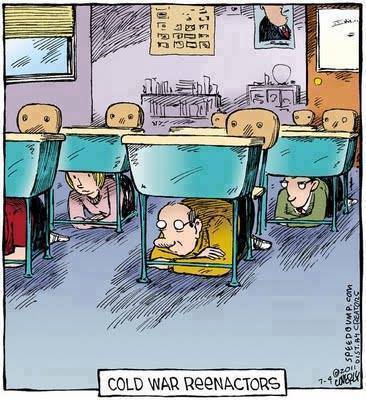
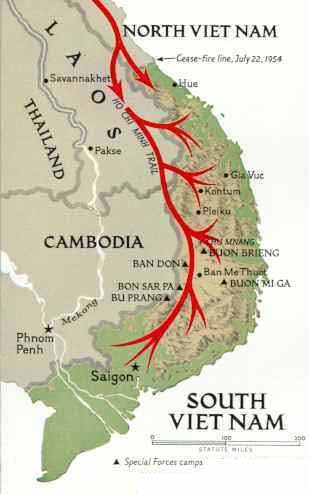
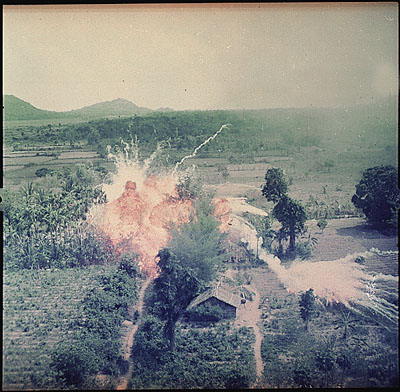

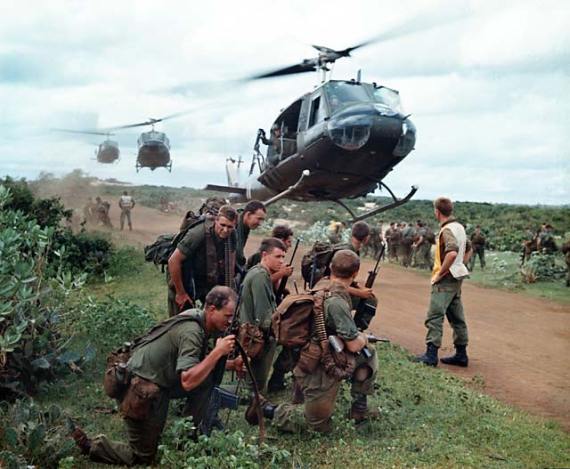
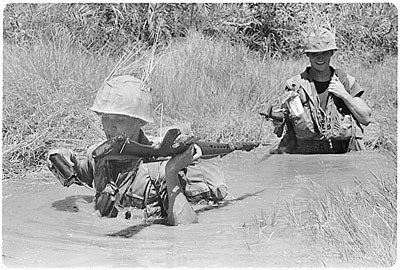
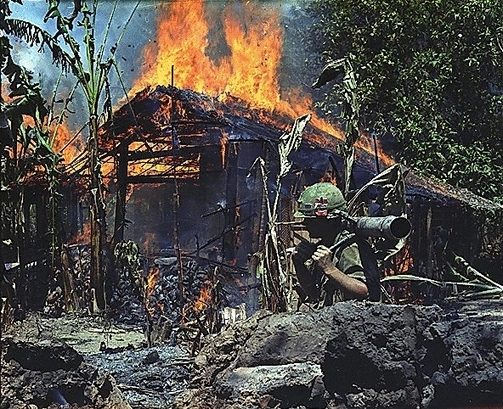


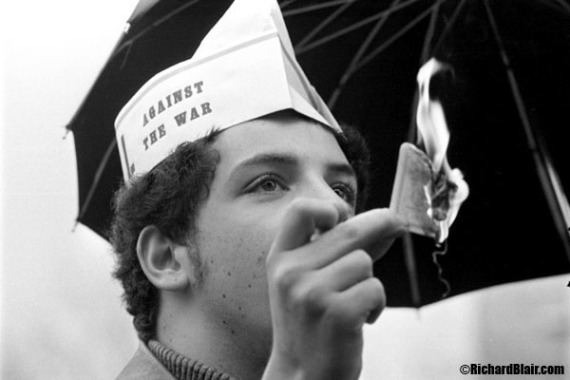
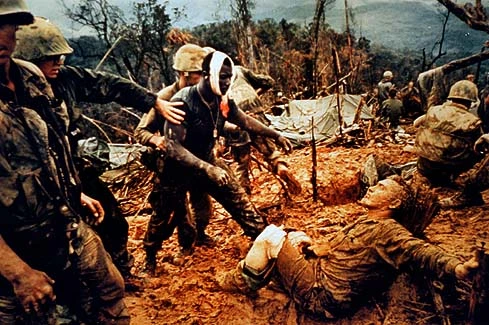
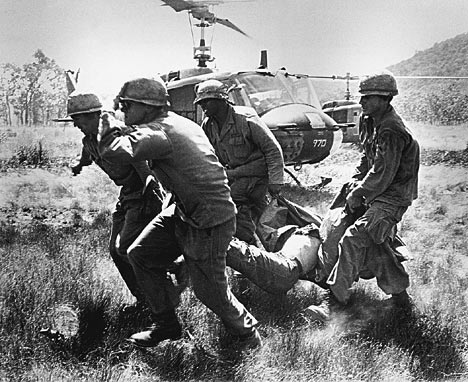
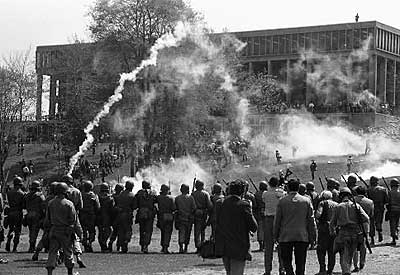

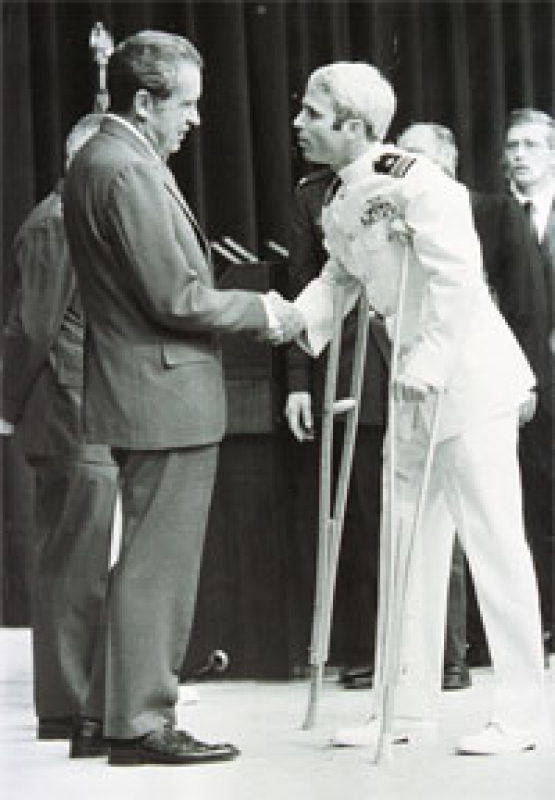
You must be logged in to post a comment.